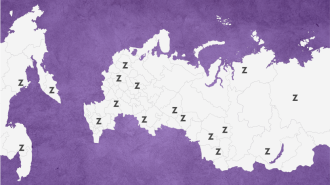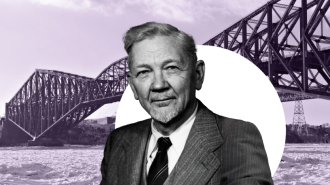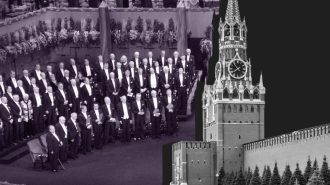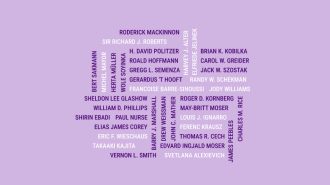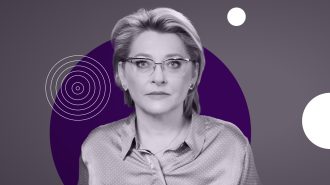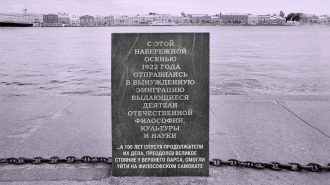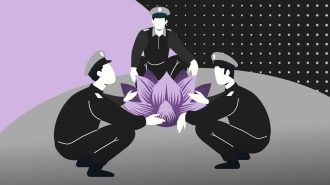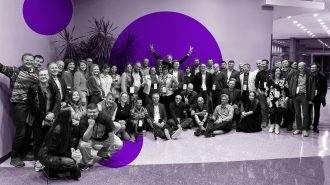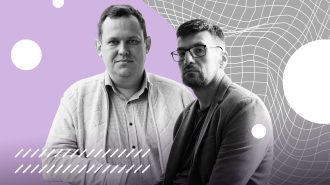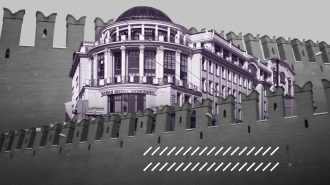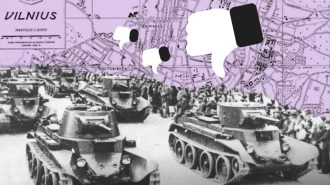In the spring of 2022, major publishers of scientific periodicals stopped collaborating with Russian organizations. In response, the Russian authorities initiated a “white list” of publications in which publication would be the basis for grant reporting. About 500 journals recently disappeared from the list - and returned with a recommendation to refrain from paying for open access in journals of the publishing house Elsevier, which announced that payments would be sent to support Ukraine. Scientists who do not follow this advice risk facing criminal charges article about treason.
university
At the end of June, acting Rector of the Russian State University for the Humanities named Andrey Loginov, ex-Deputy Minister of Justice of Russia. This happened against the backdrop of a public scandal around the “Higher Political School” named after Ivan Ilyin, headed by Alexander Dugin, created at the university. T-invariant analyzed Loginov’s biography and found that he has no less importance than Ilyin and Dugin, grounds to claim the title of the main ideologist of the “Russian world”.
Who are they - convinced patriots who brought the advance of the “Russian world” closer? Or banal opportunists who took advantage of the situation for mercantile purposes? T-invariant presents the results of a study of the biographies of heads of universities located in the occupied Ukrainian territories.
Academicians turned to Vladimir Putin with a proposal to head a new body of the Russian Academy of Sciences - the Board of Trustees. But not everyone was able to vote for this decision. FSO employees blacklisted more than twenty scientists and did not allow them to attend the General Meeting of the Russian Academy of Sciences.
In the third year after the start of Russia’s full-scale invasion of Ukraine, journalism faculties and media departments at all universities in the country changed their policies. the transfer of experience to novice journalists from military officers, Z-bloggers and even former prisoners has become regular and widespread.
February 24, 2022 is a date that divided the lives of millions of people into before and after. Millions of Ukrainians became refugees, hundreds of thousands of Russians were forced to leave the country, thousands of people became political prisoners. Schools and universities have been invaded by Z-ideology. This gave rise to a new Russian reality, which more than 75 sociologists, historians, demographers and economists studying Russian society tried to comprehend.
The eighth essay in the “Creators” series is dedicated to Stepan Timoshenko, one of the founders of modern applied mechanics. In the “Creators” project T-invariant in collaboration with RASA (Russian-American Science Association) continues to publish a series of biographical essays about people from the Russian Empire who made significant contributions to world science and technology.
42 Nobel laureates in an open letter called on world leaders not to recognize the legitimacy of Putin as president: “The war in Ukraine and the murder of Alexei Navalny do not concern only Russia and Ukraine. The Putin regime has shown that it poses a direct and clear threat to all humanity.”
42 Nobel laureates called on world leaders to increase aid to Ukraine, protect political prisoners in Russia and not recognize Putin as the legally elected president.
The Reforum has published five tasks for the restoration of Russian science, proposed by T-invariant editor-in-chief Olga Orlova.
Over the course of two years, several thousand scientists left Russia, sometimes entire teams were evacuated. Some of them managed not only to survive, but to be reborn in a new reality. In February 2024, the Agency for Control and Quality Assurance of Higher Education of Montenegro decided on state accreditation of the Faculty of Liberal Arts and Sciences (FLASH), which was created by former employees of the Moscow Higher School of Social and Economic Sciences. Teodora Shanin. And this is not the only example of how fugitive Russians are reassembling academic projects.
In Chicago, at the annual conference of the Russian-speaking American Scientific Association (RASA), sociologists who have recently been living in the United States chose for their presentations topics that can now hardly be discussed publicly while in Russia. Sergey Erofeev (Rutgers University)presented a brief overview of the most interesting presentations for T-invariant.
In Chicago, at Northwestern University, an annual conference was held, organized by the Russian-American Association of Scientists - Russian American Science Association (RASA). Mutual support, academic solidarity, political context and political division in the scientific community - in report by Denis Cheredov.
Behind the names in the “Chronicle of the Persecution of Scientists”, which is jointly conducted by T-invariant and CISRUS, there are specific people forced to fight for their civil and academic freedoms. We decided to tell in detail who and why decides to go against government pressure in science and education. The first material focuses on the history of Novokolledzh, one of the largest colleges in Russia.How did the institution begin to work, despite the refusal of accreditation and the resignation of the director, candidate of historical sciences Sergei Chernyshov? Why do the new director Yuri Lobanov and Sergei Chernyshov himself not give up their professional and civic positions? Yulia Chernaya spoke with the former and current leaders of Novocollege - Sergei Chernyshov and Yuri Lobanov.
Why did the Higher School of Economics find itself in the worst position among all the new famous universities that emerged in post-Soviet Russia? At what point did the era of solidarity with state ideology begin at the university? Was the pressure on Yaroslav Kuzminov pressure on the university itself or on the head of the Central Bank of the Russian Federation, Elvira Nabiullina? What are the reasons and consequences of including the HSE on the sanctions list? Explains former vice-rector of the National Research University Higher School of Economics Andrei Yakovlev.
Is it possible to say that the USSR annexed Lithuania? Why was the contract with the emigrant professor officially terminated? What do other teachers and students of Vilnius University, as well as Andrey Desnitsky himself, think about this? T-invariant tried to understand how such issues should be resolved from the point of view of the norms of the academic community.







